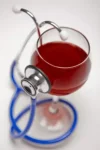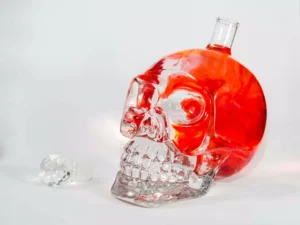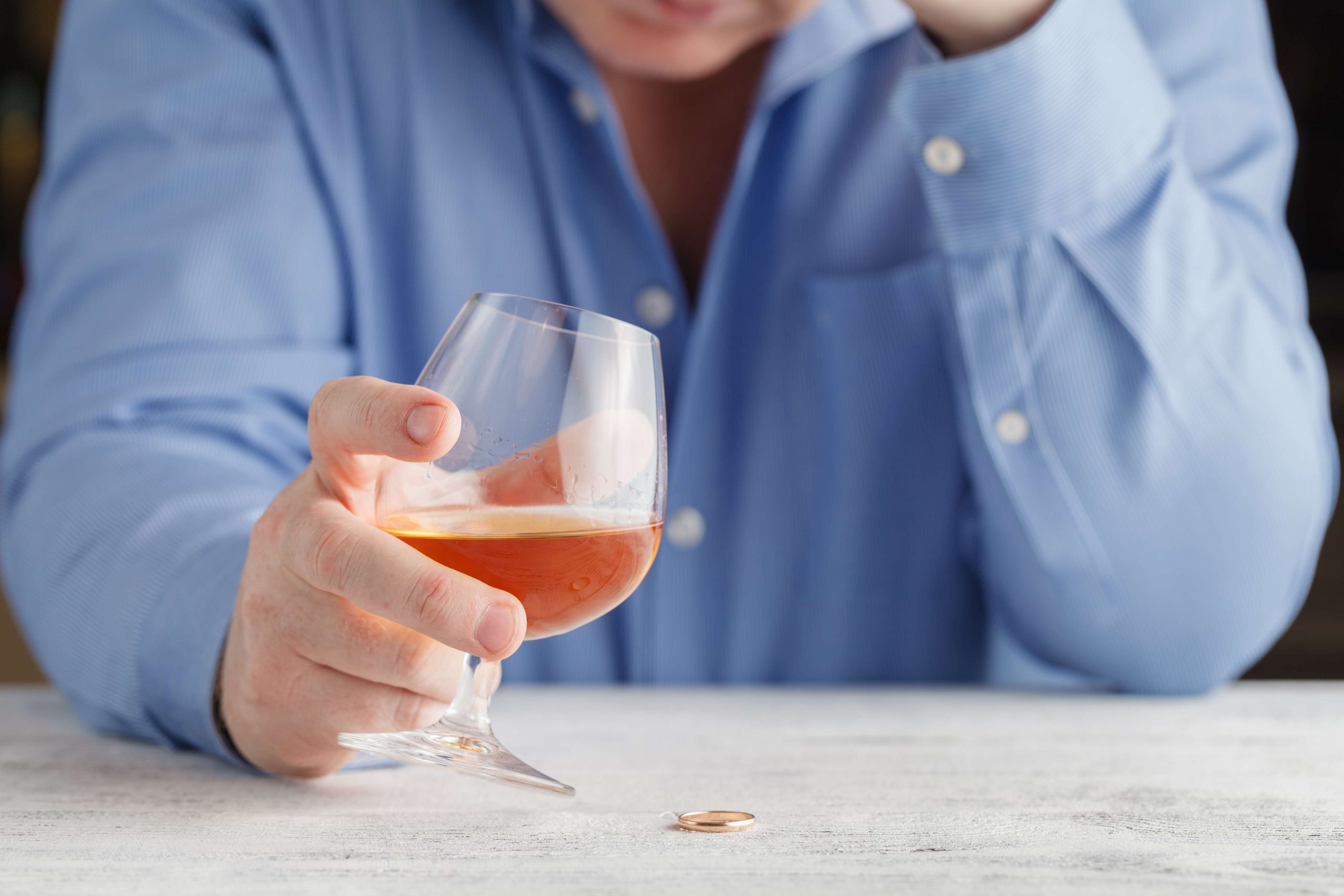Category: Sober living
5 Ways to Reduce Brain Fog After Drinking Alcohol
April 5, 2021

Answer these questions and you can start your alcohol addiction recovery journey with a clear mind. Alcohol brain fog is just as common, and it can be devastating for the recovery process. Spending time in nature has been shown to have many benefits for brain health. In addition to getting some sunlight, another great way to get rid of brain fog is to spend time in nature.
- At this point, however, the recovery paths of alcoholic subgroups diverge, based primarily on their age.
- Ohio State Health & Discovery brings this expertise together to deliver today’s most important health news and the deeper story behind the most powerful topics that affect the health of people, animals, society and the world.
- We’ve all heard the term “brain fog” thrown around, but when it comes to alcohol, this fog can become a lingering haze that disrupts your life.
- The duration of alcohol-related brain fog can vary depending on several factors.
- The Wernicke-Korsakoff syndrome is a type of brain damage that is usually caused by overconsumption of alcohol.
- The more prolonged and heavier the alcohol use, the greater the probability that the brain fog will remain for a longer time.
A Timeline for the Restoration of Cognitive Abilities after Quitting Alcohol
- The Center for Women’s Health provides personalized care for women across their lifespans.
- A study published in 2014 found that heavy drinking can speed up memory loss in early old age in men.
- In addition, information presented to patients should be concrete rather than abstract; active strategies that emphasize practice may be used.
- A person should check themselves into an alcohol detox program and receive medication to wean themselves off drinks.
- That number increased to four or five years shorter for people who had 18 drinks or more per week.
- However, seeking help and support is essential if the symptoms persist or interfere with daily life.
While the Centers for Disease Control and Prevention (CDC) recommends that you exercise for 30 minutes per day, any kind of movement counts. Creative activities will not only take your mind off of unproductive thoughts but also provide an overall sense of serenity. You will be immersed in a state of tranquility, as long as you don’t judge yourself during the process. Create for the sole purpose of creating and leave any desire for perfection behind.
Hormones and brain function
“I would have never known I was in perimenopause if hadn’t stopped drinking,” Christy says. Because the symptoms of a wine-fuelled night are similar to perimenopause symptoms. If your aging loved one has ongoing cognitive issues or you’re concerned about brain fog, talk with their doctor to develop a plan. Your mind is in a state of buffering, like waiting for a video to load with an unstable internet connection.
Liver damage
- If you are experiencing any of these symptoms, it is essential to speak to a medical professional.
- In other words, correct information may be placed in a file drawer, but an inadequate label on the file might make retrieval of this information difficult.
- You might have heard people comparing your brain to a computer, but the truth is a lot more complicated than that.
- It’s also important to note that if an individual experiences brain fog after quitting drinking, it’s possible that they may experience other withdrawal symptoms as well.
Walking is an excellent form of exercise that has many benefits for brain health. You can also try using a light therapy box that emits bright light to help improve your brain function. Also, be sure to drink plenty of fluids before, during, and after exercise, as dehydration can actually worsen brain fog.

By committing to long-term sobriety, you can give your brain the chance to heal and witness the positive changes in your brain fog symptoms. It’s like giving your brain a breath of fresh air after being submerged underwater for an extended period. Alcohol dependence happens when our brain chemistry adapts to the presence of alcohol, leading to a reliance on it to feel ‘normal’. This dependence plays a significant role in the intensity and duration of brain fog during withdrawal.
- Therefore, it would not matter whether the cognitively impaired alcoholic could or could not learn the behavior taught by the treatment program.
- Think about what your blocks are and why you feel events might not be as fun without alcohol.
- Experience-dependent recovery is by no means unique to alcoholism research.
- There is no set of symptoms that all people with brain fog experience.
Repeat testings are necessary to ensure that differences between the supposedly matched groups are not the result of unintended discrepancies between the groups (e.g., differences in premorbid intelligence). The difference in the rate of improvement between the alcoholics and the nonalcoholics is then an indication of the “true” recovery of cognitive functioning. Alcohol researchers do not know whether cognitive impairments impede alcoholism treatment. Can a cognitively impaired alcoholic readily absorb all the information that is usually imparted during treatment?
Patterns of Time-Dependent Recovery
By 5 years, all other cognitive functions have returned to anormal level state. In virtually all cases, no matter how severely alcohol-dulled you feel now, a few years of abstinence willalmost completely reverse this alcohol brain fog cognitive damage. Doctors have not yet established a safe level of alcohol consumption during pregnancy, so the best strategy for preventing fetal alcohol syndrome is to abstain altogether from alcohol at this time.
What Are the Symptoms of Alcohol-Related Brain Fog?
How To Stay Sober When All Your Friends Drink
March 4, 2021
Ria Health offers medication for alcohol cravings, recovery coaching, support groups, and other powerful tools through a smartphone app. It’s evidence-based, cost-effective treatment that gets results. If you’re living with a recovering alcoholic, for instance, they may ask you not to keep a certain type of alcohol in the home.

Why are non-alcoholic drinks so expensive when they have less tax and no booze?
Meanwhile, you’re at home wondering how many days it would take someone to find your body after you’ve choked on those peanut M&M’s you’ve been knocking back during your latest Netflix binge. My social circle changed when I got sober because I realized that many of my relationships were based on getting drunk together, and that was it. It’s pretty normal to reduce the entire experience of boredom in sobriety to missing alcohol and believing that getting drunk is the primary way you (and everyone else) have fun. The medication and treatment plan your healthcare providers recommend can depend on several factors, such as the type of substance you’re using, your health status, and the goals of treatment. Staying sober requires a person to analyze the reasons why they were using the substance, identify their personal triggers for relapse, and avoid falling into a pattern of use again.

Non-alcoholic drinks are becoming more popular. But are they okay to give to teenagers?
- A structured routine will help you achieve other goals in your life, whether they are short-term (like being on time for work) or long-term (like going back to school and changing careers).
- “Stay away from events or places that are solely focused on alcohol, such as going to a bar and hanging out,” says Hafeez.
- Drinking moderate amounts of alcohol directly reduces the size of the hippocampus, the part of the brain responsible for memory.
- Gen Z appreciate transparency and honesty, as well as recognize alcohol may have a damaging impact on them socially, she added.
- I’ve spent the last seven years researching and understanding alcoholism, addiction, and how people get sober.
When you remove alcohol from your life, you free up all the time you spent drinking and recovering from drinking. If you ever sit down to do that math, you will shock yourself with how much time went towards drinking. Additionally, when you drink heavily for a long period of time, your brain will actually start to shut down dopamine receptors in the http://onlinemusic.com.ua/ychenye-nazvali-novyu-opasnost-marihyany brain’s reward center in response to the artificial boost of dopamine from alcohol. When you use alcohol (or any substance) to artificially boost serotonin and dopamine levels in your brain, you create an imbalance in the brain. I’ve been where you are, as have thousands of other sober people who had to learn to have a life again after sobriety.
Why Can’t I Stop Drinking Once I Start? 4 Major Reasons
Whether you’re sober or not, an essential quality of a good friend is one who encourages and supports you to be healthy. Seek support and connect with like-minded individuals who share your interest in alcohol-free socializing. Look for local groups or online communities that promote sober social activities or http://srrccs.ru/warez/26275-forbidden-shakers-tech-2013.html host alcohol-free events. Surrounding yourself with a supportive community can provide encouragement, inspiration, and a sense of belonging. Choose to spend time with friends and acquaintances who support your decision to socialize without alcohol. Seek out individuals who appreciate and respect your choices.
- You may not be completely ready to stop drinking or know exactly how to get sober from alcohol, but even just having the thought that you want to stop and need help is a good place to start.
- Pile on some sobriety struggle, and it’s a recipe for madness.
- If your friend sets a boundary with you, be sure to respect it.
While they can now buy any drink they want, they have never really felt drawn to zero-alcohol products. The variety and availability of these drinks has increased in recent years, with more than 30 per cent of all consumers buying no-alcohol beer, cider, wines, spirits and ready-to-drinks in 2022. “More than a third had tried zero-alcohol products, and we found that they were really quite attractive to a large proportion of adolescents,” Dr Booth said. There are calls for better regulation of zero-alcohol beverages following new research suggesting they condition teenagers into a “harmful” drinking culture. WHO urges all countries to intensify their efforts to meet the targets of the global Sustainable Development Goals (SDGs). By implementing the “Best Buys” and other effective population-level strategies, countries can significantly reduce the burden of alcohol-related diseases, deaths, disabilities, and injuries.
And while these things might sound serious and scary, it’s important to note that it’s one piece of a larger puzzle. It’s why nothing seems fun or exciting, and you struggle to motivate yourself to have a good time. Knowing relapse signs can help you recognize your risk of relapse, and they may include a return https://neftekumsk.ru/forum/humor/27000-rzhachnye-nablyudeniya.html?start=6 to addictive thinking patterns and compulsive behaviors. But there are concrete skills you can use to hone your assertiveness and advocate for yourself. Get the help you need from a therapist near you–a FREE service from Psychology Today. Learn that you have choices and that you can maintain control.
Paycor Login | Employee Login
solara executor
galaxy swapper v2
rufus download
Paycor Login
Barbiturates: Definition, Types, Uses, Side Effects & Abuse
August 18, 2020
They are also used for day long sedation for people being treated for anxiety. When used with other drugs, long-acting barbiturates are used to control the pain from migraine headaches and to treat convulsive disorders like epilepsy. The prolonged use of barbiturates—especially secobarbital and pentobarbital—may cause the development of a tolerance to them and require amounts much larger than the original therapeutic dose. Denial of a barbiturate to the habitual user may precipitate a withdrawal syndrome that is indicative of physiological dependence on the drug.
Epilepsy and Seizures: How to Treat?
In the medical profession, this difference is called a narrow therapeutic index, which is the ratio of a drug’s toxic dose to its therapeutically desirable dose. Although the medical use of barbiturates has declined since the 1970s, high school surveys suggest misuse has been rising over the last 10 years. A common reason to misuse barbiturates is to counteract the symptoms of other drugs; the barbiturates (“downers”) counteract the excitement and alertness obtained from stimulant drugs like cocaine and methamphetamines. Barbiturates can be extremely dangerous because the correct dose is difficult to predict. Barbiturates are also addictive and can cause a life-threatening withdrawal syndrome. Never combine barbiturates with other depressant medications, including alcohol, and call 911 immediately if you suspect an overdose.
What are the advantages of these medications?
They can also serve as backup when the first-line medications don’t work.
SAMHSA Behavioral Health Treatment Locator
Barbiturates have been used historically to treat insomnia and psychiatric disorders, provide anesthesia, and manage alcohol withdrawal, elevated intracranial pressure, and seizures. Once extremely popular for a broad spectrum of indications in the late 20th century, the use of these drugs has declined mainly in favor of agents with more favorable safety profiles. However, barbiturates are still prescribed or obtained illicitly, and their misuse, whether intentional or not, can lead to grave harm or death.
It is said that on St. Barbara’s day in 1864, he developed a compound from urea and malonic acid (a chemical found in apples). He called this new compound barbituric acid, in honor of St. Barbara. Physical dependence is characterized by a compelling craving for the drug and by withdrawal symptoms when the drug use stops. The results of certain medical tests may also be affected by barbiturates, so it is important for people who take them to inform the attending health care professional before any tests are performed.
Barbiturates Addiction & Abuse
An overdose of barbiturates can result in coma and even death due to severe depression of the central nervous and respiratory systems. One of the most important advantages of barbiturates is how long they last. Some of these medications are only effective for a very brief time.
However, most barbiturate use has been replaced by the development of newer, safer, alternative drugs. In the late 1950s and 1960s, there was an increase in reports of barbiturate overdoses and dependence problems, and physicians stopped prescribing them. In the late 1950s and 1960s, an increasing number of published reports of barbiturate differences between crack and cocaine and myths overdoses and dependence problems led physicians to reduce their prescription, particularly for spurious requests. This eventually led to the scheduling of barbiturates as controlled drugs. Taking these medications as prescribed can reduce the risk of developing dependence, but some people may still have this problem.
Alcohol and barbiturates can interact and cause a much stronger effect. This can cause severe drowsiness, passing out or trouble breathing. In severe cases, this could cause a person to have severe organ damage, or it could be deadly. However, barbiturates are still proven medications for treating many conditions. They also combine well with other medications like acetaminophen (Tylenol® or Paracetamol®) to treat certain conditions. People who survive an overdose of barbiturates may be left with permanent kidney damage.
- In severe cases, barbiturate withdrawal is dangerous or even deadly.
- Meningitis, encephalitis, sepsis, seizures, brain masses, cerebral edema, and intracranial hemorrhages may cause altered mental status and should be investigated if deemed likely according to the patient’s history.
- Denial of a barbiturate to the habitual user may precipitate a withdrawal syndrome that is indicative of physiological dependence on the drug.
Thus, the use of these drugs has declined mainly in the last several decades in favor of agents with more favorable safety profiles. Despite a lower rate of barbiturate utilization overall, barbiturate toxicity is still a prevalent cause of significant morbidity and mortality that requires prompt and effective care to mitigate. With regular use, tolerance to the effects of barbiturates develops.
Barbiturates are a class of drugs derived from barbituric acid that act as depressants to the central nervous system. These drugs are used as sedatives or anesthetics and have the potential to become addictive. They’re problematic because there is no good treatment tremor national institute of neurological disorders and stroke to reverse a barbiturate overdose. A class of drugs known as benzodiazepines has largely replaced barbiturates for both medical and recreational use, although benzodiazepines also carry a high risk of physical dependence and other adverse effects.
Thiopental, introduced in 1934 for general anesthesia induction, served as the primary intravenous anesthetic induction agent until propofol replaced it. Barbiturates approved by the US Food and Drug Administration (FDA) for clinical use include phenobarbital, methohexital, butalbital, pentobarbital, primidone, and amobarbital. Barbiturates are classified according to their duration of action. Barbiturates of intermediate duration of action, such as amobarbital and butabarbital sodium, act for 6 to 12 hours and are used to relieve insomnia. Short-acting barbiturates, such as pentobarbital and secobarbital, are used to overcome difficulty in falling asleep.
Do not use more of it, do not use it more often, and do not use it for a longer time than your doctor ordered. If too much is used, it may become habit-forming (causing mental or physical dependence). Barbiturates are generally abused to reduce anxiety, decrease inhibitions, and treat unwanted effects of illicit drugs. For more information about barbiturates and misuse, visit eMedicine’s patient education articles “Drug Overdose,” “Drug Dependence and Abuse,” and “Substance Abuse.”
They can have adverse side effects when used in very high doses, and can be addictive when used for extended periods. This dependency and its adverse effects will be discussed further down. Consultation with a toxicologist or poison center can greatly assist with management and treatment decisions for barbiturate toxicity. Patients with severe barbiturate toxicity, cardiovascular collapse, or respiratory failure will need care in an intensive care unit. In the case of a suicide attempt, consultation with a psychiatrist should occur after the patient’s physical medical condition improves. The pharmacological actions of barbiturates include depressing nerve activity in the cardiac, smooth, and skeletal muscles.
Paycor Login | Employee Login
solara executor
galaxy swapper v2
rufus download
Paycor LoginTK65tnT7B5fGZu+MpkKtyo2WOe4AAJyHfCTgAdw4PCDOvBvbyd7p7tVnM5ehlbzt82ET3aAIrzvFtwL4xyeGkj4cnhbyoPTtH0/p7h/5PaPrlDB4zzpLAqUYRFEJHnl7g0egJP0U4gIiICIiAiIgIiICIiAiIgIiICIiAiIgIiICIiAiIgIiICIiAiIgIiICIiAiIgIiICIiAiIgIiICIiAiIgIiICIiAiIgIiICIiAiIgIiICIiAiIgIiICIiAiIgIiICIiAiIgIiICIiCj9cc5lNZ6O7nsOEvPp38dhLdmtYZx3RSMjJa4c+nIIWO4Hxe2sn0pm6latoM+0YSncxuvUbwysdefNZSVzIp+yJzCIomSvA8yRzS89xDA0Ne7f8AdtTx+96hmNMy01iGlm6UtGeSuWiVscjS0lpcCAeD6cgj9yzV/hY0CO9asYzL53G078mItXMdUlhbVnu45zTFbLDES2Z7GMjkLSA9rW+gcA5BSOrnjB2zovVF3cOileKHGY2vkc//AO+NNklfzOS+KlG9gfddG0ck8RAn0aSvr3bxdbDqG2bDjanQvLZrXdZ2PH6zbz
FTM1mSy270Vd1UQ1pA0v7pbUUTuXtDe4O5I5Al+rfg80jq/m9py2X3rdMRBudKKnmqGKuV44LPlQiKN/L4XyNIaG/pa8McRy5p5PNlv+HXUMlUy9S3ms4731tGH2yzJ5sId7ZjXVHQtb/N8CNxpR944JPc/gt5HAZ5f8Xm5YupTxN3oFeO52d2ZpLsBBsNeRrZ5cdPeinba7Ax0ZZCA/kN7A5zv1dvDqr1N6+daN6r6Hq+l6Rf1DMWeobtU2+CLYa7Z6ckNQ2hBDN5L2SxywkS+YGtIEYZwDJy25dbvDJkNw2fWMxpmZzlN9zqLW2rPXql6GCfGxQ4a5TbLVLm+pD3wcsIfz3O5BbyFeNe8OGn6/XwPOf2HI38LtD9vmyV6zHJayeRfVlrF9lwjDS3ypeA1gZx2MA4AIIYRg+uXWbYNI1nUtDxGybjuMWJyubzVitk6VHy6JyFypVd32I3iWYurv8ALja1oPlfqcAfW1Z/x0Yipk9Np6lojctS2zA0c/FYy2x08LK+Ky4tEFdtniOxYZ2u72ebG0HgBx5Vum8ImowVcYzV+om9axex9Czipshh8hBFYvUZrctowT90LmFrZZ5SxzWte3uPDvUlend/Bj003TAYrThse04bWcbhYcA/C0LcLqtmnE0tDX+dFI9jy0kGSJzHnn1dzwUENuPjUxmqb7lsFFoTr+r65lYMNmc2zO1Y7UM8hjDnwY9387YijMrO9wcHcBxa13avePFntUeyziz0Nux6XS3Fml29kbnoHOZaknbBHMyp2B74vMexrj3AtLvQPA5U9kPCNoNrb59mx+0bViqN63XvX8FStwto3JogwBzy6J0ze4RsDgyVodx6j1PNhseHzT7Os3dWflcwKt7bItxkeJYvMFyO3HaEYPl8eV3xtBHHd2k/q59UGTbF4kuo+1bBpcurdOcnhdHzG91sJX2b3pXe7IxRzSRzNlqceZDDIY3hj+5xPaOQwOBPVKw6DwmahV2bG5qtvu7R4nDZ8bJjdcGQiOLqXe9z3FjDF5nY5z3nsLyB3Ht7VuKAiIgIiICIiAiIgIiICIiAiIgIiICIiAiIgIiICIiAiIgIiICIiAiIgIiICIiAiIgIiICIiAiIgIiICIiAiIgIiICIiAiIgIiICIiAiIgIiICIiAiIgIiICIiAiIgIiICIiAiIgzPqT4jOk3SXLvwW8Z6xUuRUhkpo4KE9jyafcWusSeU13ZG3tJc88Bo+K+Oj4pOimSrbBdp7W90GtV4blyR1KZjZK0snlxzwFzQJoi/9Iezlv718XUPoxndu2fqBnKVulHHtfT6bU6gk57o7L/O4e70/Y/nW/D19Cqdvfhg2jbcBJhqWbxtKT/BnT0+KRzHOa2/XsMma8tH/AMImMA8evBKDXtt60dO9Hmz9fZc4asutVKN2+xsD5HNZclkirNY1oJe+SSF7Q1oJ54+qp+V8TGq+VpmawkjY8Jns9aw+WsZitNQlxogozWXl8cwaWuHls57hxw7lUPM+H7rH1Cj6kZfqTW0G7d3TDa/j6+K4tPpR+77FqV7XStcyVrnee1zJWEFj/UA9vrWKvgh2rb9HwujdVtqmuYOntk2cixbc7duOxFQ42StHDXuTHzpOJ3CYNee0c8cEc8huuc8TfSTXcLhM5lMpk2x7DBJcoV4cTZmtSVGHh1l0LGF7IR6HvcAOCD818kniQ06nsuanyeaxMWkYzVcfs0OdZK57Z2WpnxsDeOe4O4Z2ho7i54HHPosv2nw49cM3d1zdJ9ho5HaMZg36xkjX2bMYKK5XjnL69wPx0sTi8tIMkT+W9xPaRwF6cz4Kszd1CTVMVn8fjPY9fwNbHvqT3Y425HHZA3T+vzjZZE9x7Q9s3mt57muBAQaw/wAV/RGDVZtvvbLbpU6uSr4mzBbxliG3BZnBMLH13sEo7wCWnt4PyUHsfjD6dUMLrOd1qnl8zDntti1O1E3GWY7GOnIDpPOhMfex4a5jgxwHcHAhUvBeFfeprNDY9hdi62WZuOu5qy1+xZjNvdSxskryw2MjPK4uJlcWta1gHzJ9OLNsfQLfX5XYNj127hpLtrqZjt3owWnvZG+vBSr13xPc0EteTE8ggEfBBdcT4mekWbyOUx+OzV97cVXt2ZLjsVZZTmZVDjY8mw5gjlLOxwIa4+rSF4al4pOiG6G87D7k2KGhi5M06zdqzVYJaEbeZbEMkjQ2WNn9ZzCQFz9k/C51O07IbtuOLtYnX8TNiM9ZyFPXMlkPZ866erN2MfjJXurwPDngl0XqXAkAdxU9onRnr/uvTzVMlldn1zVr+v8AT5+I1a3jasntDLVulExk9mOQcRmINaDG3kdwJ+gQa1jfFf0TyeI2HNt2G9UrazjDmrwvYqzVeaHPHtMTZWNMsZP9ZvPyXlR8V/Q+9r+x7O3aZ69HVY61jJm1jrFeRlew/sgnayRgc+J7ge17QQeFhU/hE6xbAd0uZzI4SpJsujWtWgifn8nl5W2HzskbLLYvPe8tIDv0t4DfQALS+r3h02bf89tGSxV/Gw183q+CwcMcvP6ZaWSfakLgBx2ljgB+9Bb8V4peimW13P7NHtU1atrMteHIwXMfYr2o3WOfZu2B7BI/zuD5fa093B4XhJ4quicGqDcLOzWYKgybcLLXmxthl2C89neyCSsWea17m8Fo7f1dw455VB6xeFvaOou+btumJz1ak/K19VlxDG3LVR3tOKmvvkbJNWeyaJr222Br43hwIJ+XB+bTvC/uVLI4vac+/FwZX+V2Pzl+P37lcxIatStNExjrWRmlkkf3SkjtDGgcD145QaW3xRdGnaa3dm7BcNZ+TfhW0RjLByJvsHc6t7J2ed5gb+ojt9B6r7uhPWCv1q1/ObNQigbRoZ+5iqckTXtMsMPbw97X8Oa/lxDmkDgjjhZxm/D91Jx2/ZXqtpGRwEuai2+fP42jkvMFaxVnxsFOWKR7AXRycwlzXAH6H4rQfD/083Dp3rmeg3q5irGWzuxXs5IcYxza7BYLSGNDvX04I5Px+PzQagiIgIiICIiAiIgIiICIiAiIgIiICIiAiIgIiICIiAiIgIiICIiAiIgIiICIiAiIgIiICIiAiIgIiICIiAiIgIiICIiAiIgIiICIiAiIgIiICIiAiIgIiICIiAiIgIiICIovYM0MNUbIxjHyyEhne4hjQ0FznOIBPAAJ9ByfgglEVbxuw5T2qGHK1miKy8RskFZ8DmvIJaC1zncg8H1BBB9CBypK/sOIxjLcl615TaLWOn5Y49oeeGkcD15Pp6IJJFG/yixHt4xvtX8+5vcP0O7f2O/ju4457fXjnnhegbdgDVqXG3SYbrnNhcInHntd2kn0/SASByePigmUUYdkwwntV/bOZKU0UEzQxxIfJx2Aenrzz8vh68/BeGW2jDYSwypkLEjZnxmVrI4XyEsB4J4aD8EEsirE+9YupknRWJ2mk6nFahliifI53c5wJIaDw0AD149OV9l3cteoPY2xdcQ9jJe6OF72tY79kuc0ENB/egm0UJZ3LXqlm1UmuPElJodYLYHubGC1rgS4Dj1Dh/t+hXzv6garG17pL8jRER391aQdrT8HH9Po3/pfD96Cxooa9t2Bxtz2K3bex4c1rnCF7mMLv2Q54Ha3nkfE/Ne07LhWvrRuucPt2HVIWljgXSt55b8PT4fE+nqPqEEoirGT3CODzn46aCYRwteGPieHH+f8tzufQFvoePnyOfgvv/lHSsTwRUrUbmvtezOc6J5a9waSWscPQkcep9R8R8UEwijcvsOKwbomZCd7XzAljI4nyPIHxPa0E8D6qIO+4ivkrMFywBVZHDLDLHE9/LXt5Ln8A9o/eeEFpRfjXNe0PaQWuHII+YX6gIiICIiAiIgIiICIiAiIgIiICIiAiIgIiICIiAiIgIiICIiAiIgIiICIiAiIgIiICIiAiIgIiICIiAiIgIiICIiAiIgIiICIiAiIgIiICIiAiIgIiICIiAiIgIiICi9gwvvmo2NkjGSxklnmNJY4EFrmuAIPBBI9DyPipREFbxuvZT2uGfK2QYq7xIyMWXzuc8AhpLnNbwByfQAkngknhe7OawMzlKdt0rW12AttxEf5YN5Mf+q/1U8iCpDS7I1sYwXme3tnE4skHjkfp4+v+T5b/evdS0qKvLk45Z2uq2YjBUjA9YGu/VIf4l/r/wBUKzogqeL0uendx961cjlfE2SS4Gg/z05e5zXD9zS94HPy4XpvQbY/Za1ilHjm2hjXMmMrZHQcmT+q4evI9Dwfj+74q5IgrGI1GfFecz2qOUPxraYcQQTJ3Pc48fJvL/QfuUNkNF2SzSdjor2OfFJVigD5jLzCWsAIa1v6SCQTyfX1+B4WgIgqsmp3ZKeermev35YwGM8nhvZDGw93p9WHj9xC9ua1i1khm/JmgacnjG0o+7n9Lx3+rvT4fqHw+isqIKJn9J2LLPtQxXceYZ3RvjkmMpfH2dv6A0fpAJb+16n1+C+/KaVNeu5C7BbjidNG11MEH+YnLmue/wDvMcf+1WxEFPyejzWw6CCaEQOxsNHh5IJLZe9xPA+BH+1e6lqd6hNUqQWYXY3H3faarXE+ZHG5jg6P4cEBzvQ8/A8H4K1Igrd/FbLJdrZuhJjG344ZK0sUvmGEsLuWlpA7uRwORx6+q9cer5I1MvHavQT2MlSZXEoZ2DvDC0ktA4A5Ppxz6K0Ig9VSJ0FWGBxBdHG1hI+HIHC9qIgIiICIiAiIgIiICIiAiIgIiICIiAiIgIiICIiAiIgIiICIiAiIgIiICIiAiIgIiICIiAiIgIiICIiAiIgIiICIiAiIgIiICIiAiIgIiICIiAiIgIiICIiAiIgIiICIiAiIgIiICIiAiIgIiICIiAiIgIiICIiAiIgIiICIiAiIgIiICIiD/9k=” width=”450px” alt=”what drugs are barbiturates”/>
There is one other interesting use for barbiturates in the field of psychology, law enforcement and the military. This application involves sodium pentothal in particular, more popularly known as the “truth serum”. This drug allows access to the levels of human consciousness that are normally only tapped in dream or trance state. The drug is therefore used mixing alcohol and antidepressants on traumatized WW2 soldiers during therapy. Under the influence of sodium pentothal, these soldiers are able to relive and better verbalize their battle experiences buried deep enough by voluntary recollection. The drug also takes away a person’s normal levels of inhibition, making them more forthcoming with information that they would otherwise withhold.
Drugs.com provides accurate and independent information on more than 24,000 prescription drugs, over-the-counter medicines and natural products. This material is provided for educational purposes only and is not intended for medical advice, diagnosis or treatment. Data sources include Micromedex (updated 7 Jul 2024), Cerner Multum™ (updated 14 Jul 2024), ASHP (updated 10 Jul 2024) and others. Abrupt discontinuation of barbiturates in people who have been taking them for longer than one month can cause severe withdrawal symptoms, such as hallucinations, a high fever, and seizures. People with certain medical conditions are at higher risk of complications due to barbiturates especially as it is very likely that they are taking some medications to address their issues.
